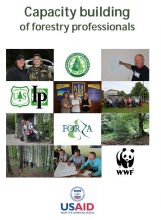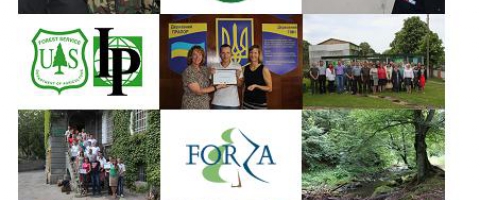
State Agency of Forest Resources of Ukraine together with US Forest Service International Programs, NGO Agency for sustainable development of Carpathian region FORZA and WWF Ukraine are organizing the International Training “BEST PRACTICES IN FOREST ROAD ENGINEERING: BUILDING SUSTAINABLE ROADS AND MINIMIZING ENVIRONMENTAL IMPACT”,
Aim: to present experience and approaches of US Forest Service to road engineering with minimum environmental impact, to present and discuss issues and experience of road construction in Ukraine on the examples of state forest enterprises Skolivske and Slavske.
Dates: August 31 – September 4, 2015
Location: conference hall of Taurus hotel, Kn, Svyatoslava sq,5, Lviv, 79016, and tourist complex Zahar Berkut, Khmelnytskoho str. 1, Volosyanka village, Skolivsky rayon, Lvivska obl, 82663
Trainers: Mr. Gordon Rex Keller, Geotechnical Engineer and Ms. Erica Borum, Civil Engineer from US Forest Service,
Participants: designers and engineers invovlved to forest road construction from Ukraine, Belarus, Balcan countries - 25+ persons
Financial support: USAID and US Forest Service International Programs
The training program includes theoretical and practical exercises in the field (Skole, Slavsk) on the following topics:
Design Standards, Geographic Considerations, Plans and Specifications
Estimation of Road Costs
- Environmental Analysis Process for Rural Road Projects
- Basic Hydrology; Use of the Rational Method for Small Drainages
- Hydraulic Design: Manning’s Formula for Determining Flow Velocity and Discharge
- Drainage Design Tools: Use and Sizing of Riprap; Filter Concepts; Use of Geosynthetics
- Natural Drainage Crossings
- Culverts Location and Installation
- Roadway Surface Drainage for Low-Volume Roads
- Wet Area Crossings, Special Considerations in Meadow Areas
- Subsurface Drainage, Underdrains
- Stability of Roadway Cuts and Fills (Methods of Slope Stabilization)
- Types and Use of Retaining Structures
- Environmentally Sensitive Road Maintenance
- Erosion Control: Physical and Vegetative Methods
- Use and Properties of Roadway Materials
- Aggregate Surfacing, Options for Roadway Surface Stabilization
- Construction Materials Sources, Quarry Development and Reclamation Plans
- Compaction, Materials Quality Control
- Roads Environmental Impacts and Mitigations
- Water Quality Protection, Wildlife Impacts, Fish Passage, Invasive Species Problems
Participants will be awarded certificates for completion of the training.





